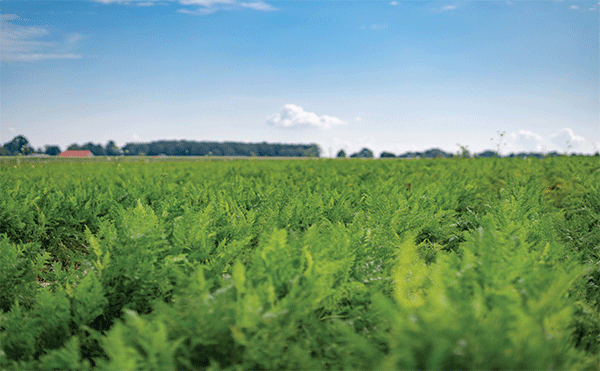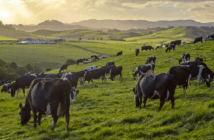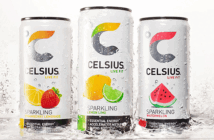
As the clean label trend has evolved, consumers increasingly want to enjoy their products with a clean conscience. Sustainability has become a huge focal point for the food industry, with increasing levels of attention paid to all aspects of food and drink, from processing and packaging to individual ingredients.
As a result, colours are under the spotlight like everything else. While conscious consumers have long sought to avoid artificial colourants, it’s now important to ensure clean-label colours meet environmental expectations, too.
“At GNT, our Exberry colouring foods are not only made entirely from fruit, vegetables and edible plants but with a strong emphasis on the environment from start to finish,” says Victor Foo, general manager of GNT Singapore.
For one thing, many manufacturers now seek to use plant-based ingredients as they know that means they provide an inherent sense of sustainability that connects with environmentally conscious consumers. Exberry colouring foods are 100% plant-based and can be declared on the ingredient list in a way that’s simple for consumers to understand, such as ‘colouring food (concentrate of pumpkin and carrot)’.
“But it goes far beyond that. For example, the way we grow our raw materials is important. GNT’s supply chain is vertically integrated, and we aim to establish long-term relationships with our farmers. That’s enabled us to deliver color consistency and security of supply but also to maximise the sustainability of our operations, including controlling the use of pesticides and fertilisers. All our suppliers are requested to work to global GAP certification and we only work with those who can show that they follow sustainable agricultural practices,” says Mr Foo.
“We then adopt a straightforward approach to processing our raw materials, using simple physical methods such as pressing, chopping, filtering and concentrating, and never any chemical solvents. Afterwards, we’re often left with byproducts that can be upcycled into press cakes, which local farmers can use for animal feed. The vast majority of the residues that remain after production are used either as cattle feed or in biogas plants.”
Transportation is another key factor when it comes to sustainability.
“Most of our crops are grown in fields close to our processing sites, which allows us to minimise transit. When sourcing globally, we choose colour-intensive raw materials that enable us to achieve high amounts of concentrate. High concentrations mean the volumes shipped are kept as low as possible, helping to minimise our environmental impact.
We use highly concentrated finished products wherever possible. As well as making them more efficient to transport, this approach enables us to use less packaging. We also avoid running vehicles below maximum load capacity, and we’ve implemented an improved stacking pattern that means we can transport 33% more volume per truck,” says Mr Foo.
These are just some of the aspects that make up the company’s approach to sustainability, and Mr Foo adds that it is committed to continue to seek out further improvements wherever possible.
“As consumers increasingly adopt environmentally conscious approaches to their purchasing decisions, the focus on ingredients is intensifying. By colouring their food and drink with Exberry, manufacturers have the opportunity to create the wholly sustainable products that consumers demand.”




























































































